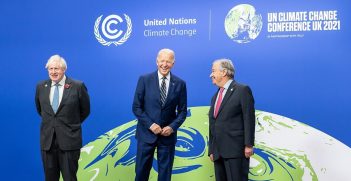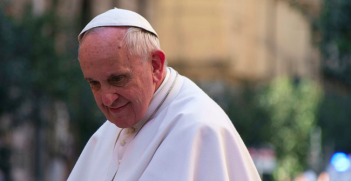The Complex Dynamic Between Cuba, Venezuela and the Americas
Is there a contradiction in the approach toward Cuba and Venezuela, as spearheaded by the U.S.? Or, does such an idea forget the two governments have agency and interests of their own?
As Mexican writer Jorge Volpi once said, Latin America does not exist, not even as a utopia.
Latin American governments are mostly absorbed by their own national political dramas and devote little time and energy to continental affairs. The region doesn’t seem to loom large in U.S. diplomacy either, except when a crisis erupts; or, as is currently the case of the rapprochement with Cuba, when the President wants a certain initiative to be part of his legacy.
Cuba matters to the U.S. for three main reasons: 1) Florida is the biggest swing state of the union; 2) Cubans will almost certainly migrate en masse to the U.S. if the Castro regime collapses; and 3) the disputes between the U.S. and Cuba matters a great deal, symbolically, in hemispheric affairs. Obama won Florida in 2012 and won’t face the electorate again. It is in the best interests of the U.S. to have a peaceful and gradual transition to a more open and free Cuba. Finally, Obama’s policy earned “U.S. raves in Latin America,” as The New York Times put it.
Apparently, it doesn’t matter much if Cuba rejects the letter and the spirit of the OAS Democratic Charter, which explicitly calls for “access to and the exercise of power in accordance with the rule of law, the holding of periodic, free, and fair elections based on secret balloting and universal suffrage as an expression of the sovereignty of the people, the pluralistic system of political parties and organizations, and the separation of powers and independence of the branches of government.”
In the same way, Latin American governments, who not long ago vehemently condemned the coups in Peru and Honduras, are indifferent to the erosion of human rights in Venezuela. In fact, the Harper government is probably the one country of the hemisphere that has been most critical of Venezuela’s authoritarian path. For this reason President Chávez pulled the plug on foreign minister John Baird’s scheduled visit in early 2013. Last February the president of the Venezuelan National Assembly accused the Canadian ambassador of “intervention in internal affairs,” after the diplomat issued human-rights awards to local human rights NGOs critical of Maduro’s government.
Cuba: A case for the Obama Doctrine
President Obama meanwhile appears to have chosen Cuba as a test for his foreign policy “doctrine.” Apparently inspired by the work of political scientist and NSC member Charles A. Kupchan, the “Obama doctrine” rests on the proposition that the U.S. can afford to try engagement with its enemies, rather than resorting right away to coercive options. It’s a sequel to Theodore Roosevelt’s “speak softly, and carry a big stick,” but apparently, with no stick, except as a remote or theoretical possibility.
In his remarkable interview with NYT columnist Thomas Friedman, Obama describes Cuba as “a tiny little country. It’s not one that threatens our core security interests, and so [there’s no reason not] to test the proposition. And if it turns out that it doesn’t lead to better outcomes, we can adjust our policies.”
President Obama mentions a grand total of two testing grounds for his new approach: Iran, a country of 78 million with a nuclear ambition, and Cuba, an economic basket case of 10 million with no military reach whatsoever. Needless to explain, the risk with Cuba is comparatively minimal and the potential gains, appreciable. Obama has been preparing this policy for years (he’s been talking about it since 2008). He made sure the move would be accepted at home and he knew that it would boost his and his country’s image south of the border — even in Cuba, according to recent polls. The December 17, 2014, joint announcement by Presidents Obama and Castro was a well-choreographed affair.
Venezuela: Sanctions, yes, but far from an embargo
What a contrast with the recent U.S. foreign policy toward Venezuela! For years President Hugo Chávez and his successor Nicolás Maduro have vilified the U.S., expelling American diplomats and relishing confrontation with the Yankees. In late February President Maduro announced mandatory visas for all U.S. citizens and ordered the U.S. Embassy to reduce its staff from 100 to 17 officials. Meanwhile, oil shipments to the U.S. continue (roughly 40 percent of overall shipments of oil), and Venezuela enjoys a substantial trade surplus with the “Empire” (U.S. goods trade deficit with Venezuela was $19 billion in 2013).
It is in this context that one can assess the limited U.S. “sanctions” announced in March. They target only seven government officials accused of corruption and human rights abuses, by denying them visas and freezing their revolutionary bank accounts in the US. Washington didn’t even protest when Venezuela was elected to the U.N. Human Rights Council (to be sure, not a huge precedent for this infamous institution). The announcement for these very limited sanctions was made by the State Department and Obama merely signed the executive order. At first the measure came with the rationale that Venezuela represents a threat to U.S. “national security.” This predictably played to Maduro’s political benefit: he immediately requested emergency decree powers from Venezuela’s Congress and mobilized Venezuelans against an imminent U.S. aggression.
Weeks later, during a telephone call with reporters to discuss the president’s trip, a deputy national security adviser (Benjamin J. Rhodes) clarified that the words concerning the threat to U.S. national security was purely “pro forma”: “The United States,” he clarified, “does not believe that Venezuela poses some threat to our national security.”
While U.S. foreign policy toward Venezuela seems off-the-cuff and maladroit, it does not contradict the “Obama doctrine” applied in the policy toward Cuba. There is no U.S. embargo against Venezuela and it is far from clear that the absence of dialogue with the government of Venezuela results from the U.S. refusal to enter it. Maduro’s rhetoric on Obama’s policy toward Venezuela is simply misleading. The main difference between the foreign policies toward Cuba and Venezuela is that the White House sees the normalization of U.S. ties with Cuba as a major legacy of the Obama presidency. Right or wrong, Venezuela doesn’t seem to matter much for the White House.
Cuba-Venezuela relations and the Lampedusa Doctrine
The most intriguing part of the diplomatic puzzle is the relations between Cuba and Venezuela. Curiously, the smallest and most impoverished country dominates the other and receives prime attention from the White House. While the Venezuelan government has not fully adopted the Cuban model (the Cubans are probably not advising it to do so), Cubans are all over the security apparatus in Venezuela. It is not clear how much information the Cubans shared with Caracas about their negotiations with the U.S. (which started, interestingly, after the death of President Chávez). One thing is sure, Raul Castro looked pretty sharp in Panama this past week, joining the anti-U.S. chorus while reaping the benefit of photo-ops with the popular (in Cuba and Latin America) U.S. president.
Meanwhile, in Cuba, Raul Castro seems to follow what can be called the Lampedusa doctrine. In his famous novel The Leopard (1958), the Italian novelist Giuseppe Tomasi di Lampedusa has his main character saying: “If we want things to stay as they are, things will have to change.” For this strategy to work, changes need to be limited and gradual, and the group in power must feel firmly in control of the situation. Cuban writer (in exile) Antonio José Ponte called Raul Castro the great “lentificador” (someone who slows things down), a verdict that was confirmed by Raul himself during the Summit, when he said, “We are willing to discuss everything [with the U.S.],but we need to be patient, very patient.”
Some observers have suggested that the turmoil in Venezuela and the free-fall in oil prices prompted Cuba to replace Venezuelan oil with American tourists. The considerable help Venezuela sends Cuba is in the form of oil (115,000 barrels a day, some of which Cuba re-export), not dollars. One shouldn’t forget, however, that the economic case for closer commercial relations with the U.S. has always been pretty obvious. The political ramification of closer economic relations with the U.S. is paramount to the Castro regime. Lifting the U.S. embargo serves Obama’s strategy, not Raul’s, for the increased presence of American tourists and investments can open up Cuba more ineluctably than diplomacy. For this reason, it shouldn’t surprise anybody if little of the bilateral agenda for normalization of relations is accomplished before the end of Obama’s term in office.
What Raul Castro wants is time, hoping that something will come up and rescue the economy (like the Mariel special economic development zone, or offshore oil fields). What if there is a change in administration in the U.S. in 2016? The Castro regime does not have much to lose: it will simply continue to change so that things can stay as they are.
Yvon Grenier teaches and writes on Latin American politics (especially Cuba, Mexico and Central America), art/literature and politics, as well as political violence, at St. Francis Xavier University. He is a contributing editor for Literal, Latin American voices. This article was originally published in OpenCanada.com on 14 April 2015. It is republished with permission.





